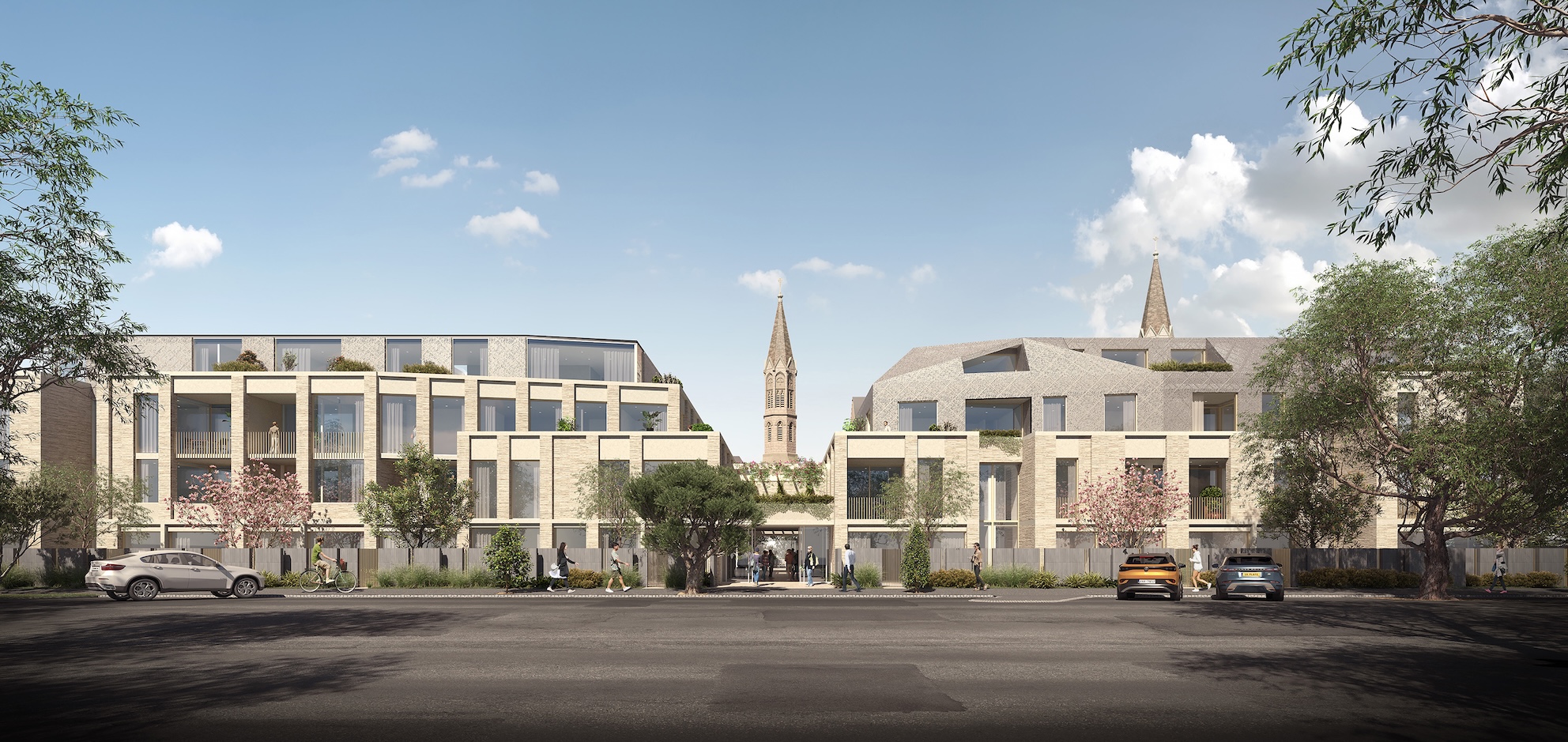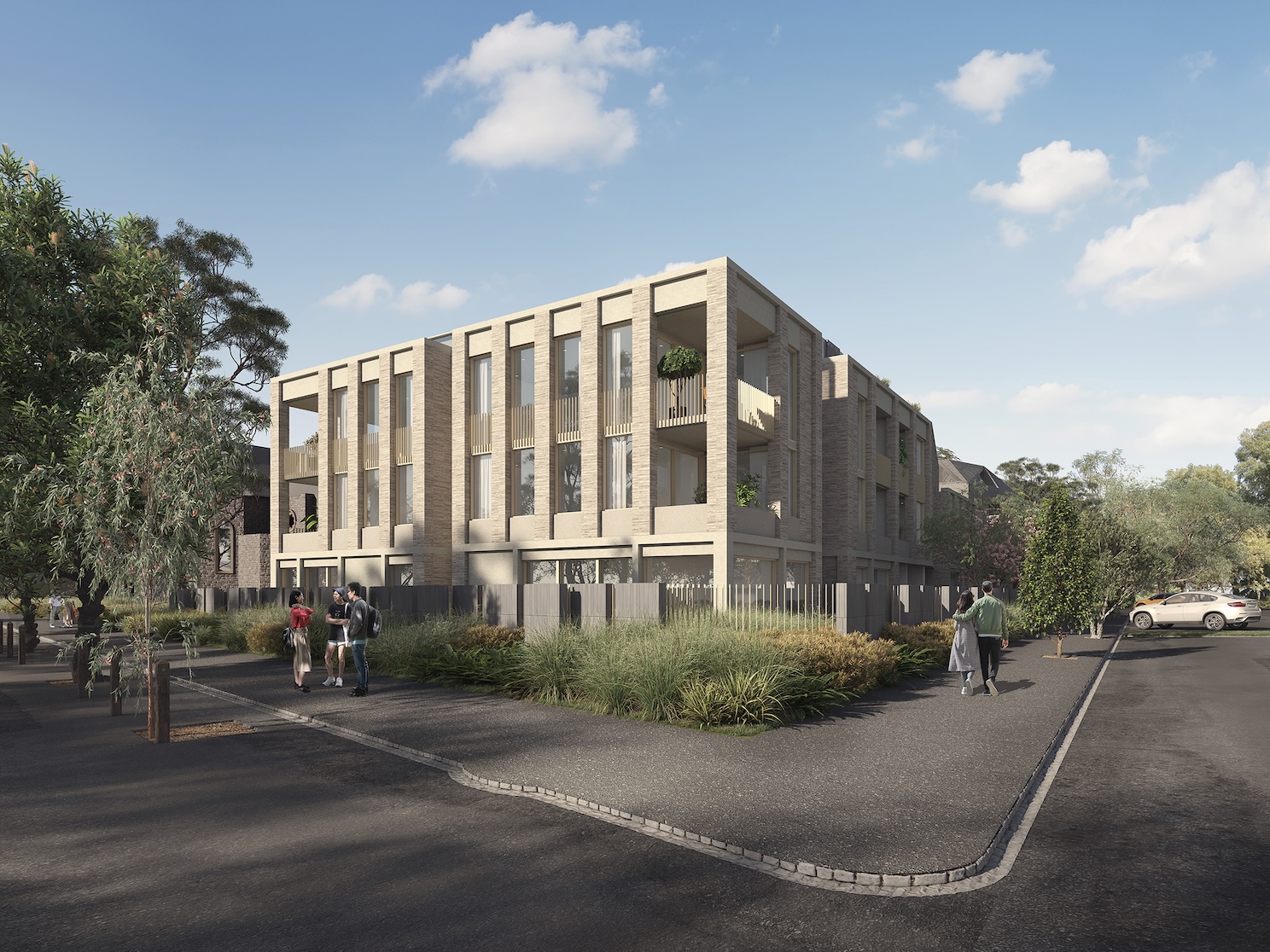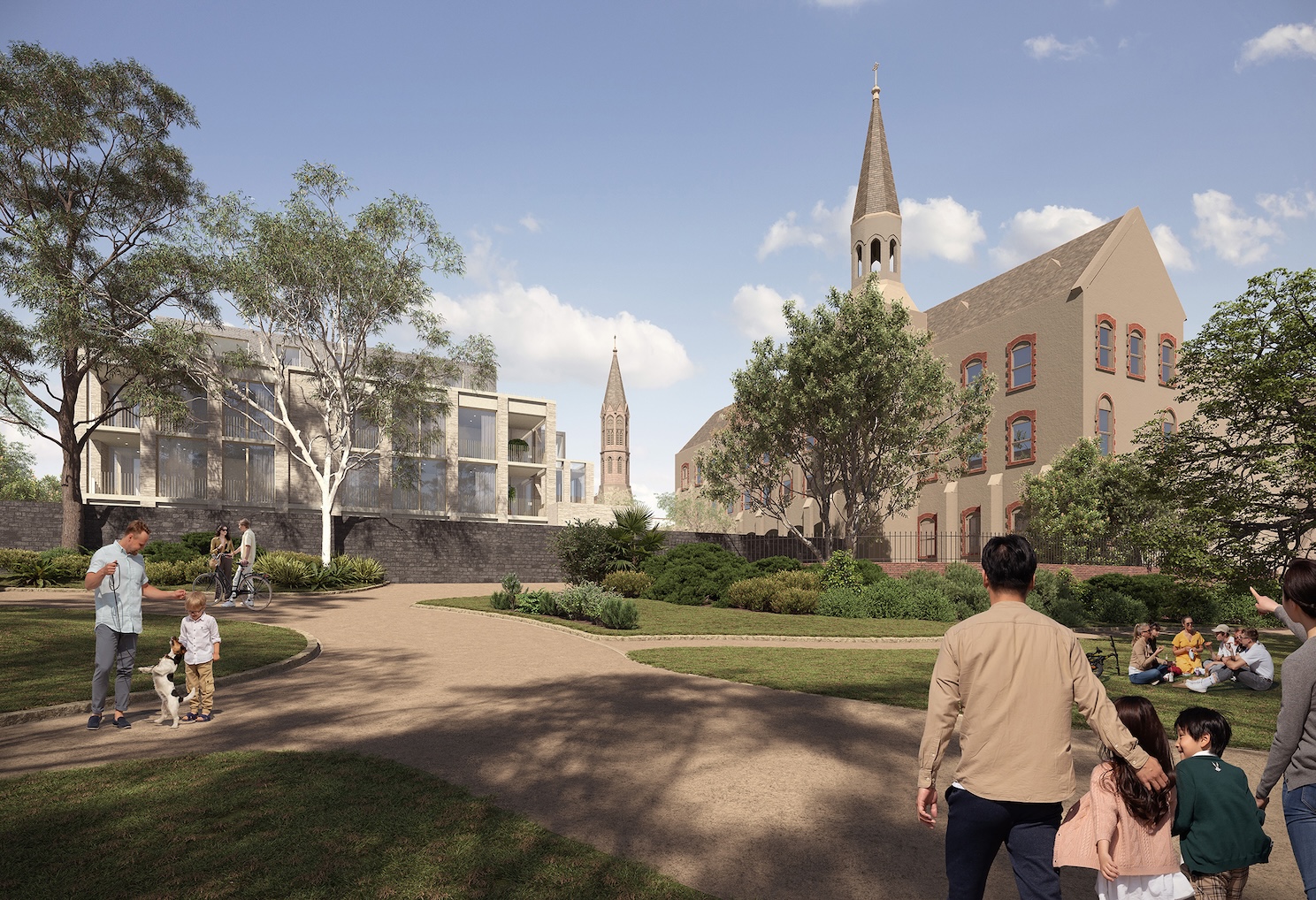Mercy Health has unveiled plans for a contemporary retirement living community in Abbotsford that honours the site’s unique history while addressing a growing need for senior housing in inner Melbourne.
The proposed development, located at 2–10 Clarke Street, will replace a now-vacant, outdated two-storey aged care building with a thoughtfully designed four-storey residential complex. Comprising 60 private apartments for retirement living, the proposed redevelopment has been designed to provide older Australians with the opportunity to age safely, comfortably and with dignity in the neighbourhoods they know and love.
The Clarke Street site has a storied history. Originally built in 1977 as a hostel for nuns from the neighbouring Abbotsford Convent, it was acquired by Mercy Health in 2015 and transformed into an aged care facility. After nearly half a century of service to the Catholic mission, the building was permanently closed in 2023, having been deemed no longer fit for purpose. The proposed transformation reflects Mercy Health’s ambition to evolve alongside the needs of the community while respecting the legacy of those who came before.
“Older Australians increasingly want to remain in their communities as they age, but there is a critical lack of suitable accommodation in places like the City of Yarra,” a Mercy Health spokesperson said. “This project helps address that gap, offering high-quality retirement living in a location rich with history, culture and connection.”
Mercy Health has worked in consultation with a broad range of stakeholders throughout the planning process, including Heritage Victoria, the City of Yarra, First Nations groups, and organisations connected with the Abbotsford Convent precinct. The proposal is aligned with the Burra Charter and relevant council policies, and includes expert reports on heritage, landscape, tree protection, and architectural impact.
The new building has been designed with sensitivity to its surrounds and consideration of the existing local community. Although it will be four storeys, its footprint is smaller than the current structure and has been positioned to maximise open space, visual appeal, and compatibility with heritage values. The design includes green walls, ornamental gardens, and a publicly accessible pocket park. Parking has also been considered, with underground spaces for residents and additional on-street spaces to be created.
According to Mercy Health, the project offers more than just bricks and mortar. By supporting older residents to remain in or return to Abbotsford, the development will enrich the local economy and community life. Increased visitation and engagement with the broader Abbotsford precinct — including the beloved Convent — are some of the anticipated benefits.
The proposed development has been in the headlines recently. The Abbotsford Convent Foundation has raised concerns around sightlines to the Convent’s historic spires and the potential for future tensions related to noise and public space use. Mercy Health has acknowledged these concerns and has reiterated its commitment to open consultation and respectful design.
“We welcome community feedback and will continue to engage with stakeholders as the project moves forward,” the spokesperson said. “Our goal is to contribute meaningfully to Abbotsford’s future while honouring its past.”
With the proposal now progressing through the planning and heritage review process, Mercy Health remains optimistic that the Clarke Street redevelopment will become a valuable addition to the area — providing a new chapter in a long and evolving story of care, community and connection.






